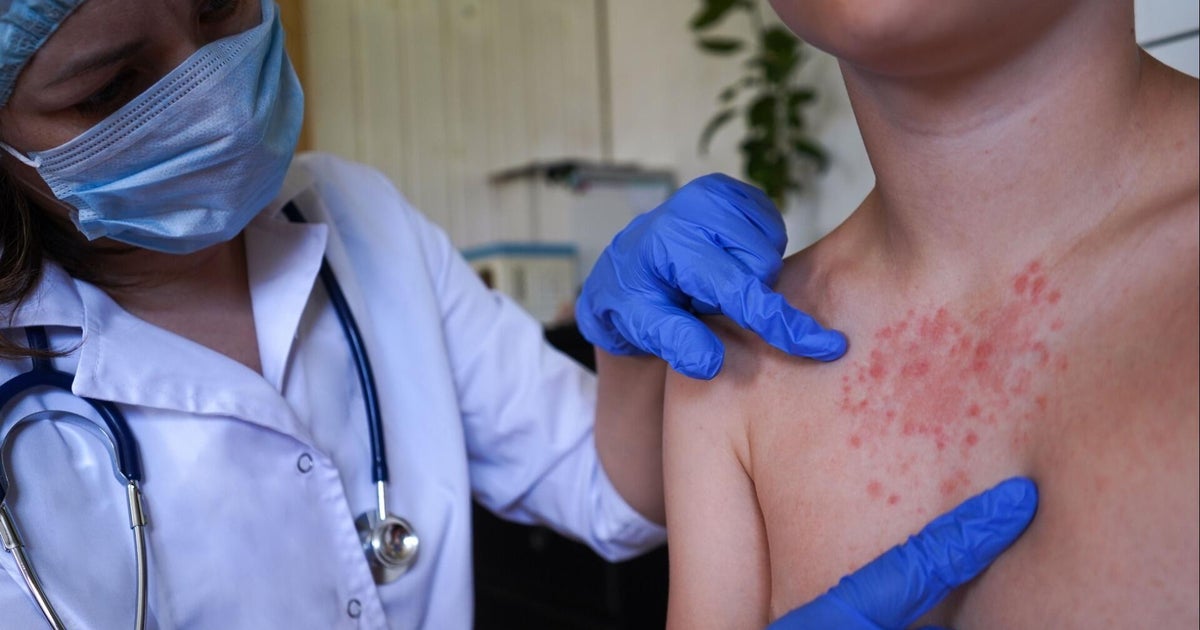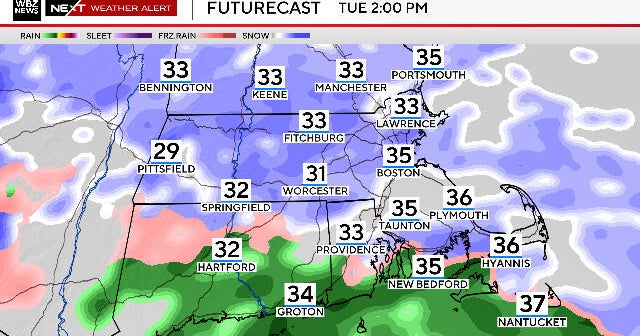New COVID variants EG.5, FL.1.5.1 and BA.2.86 are spreading. Here's what to know.
Health authorities say they're closely tracking the spread of three new COVID-19 variants now spreading around the country.
Levels of COVID-19 hospitalizations and deaths for now remain far below previous peaks seen during past summer and winter waves of the virus, but have been climbing steadily for several weeks and are predicted to accelerate.
Public health officials have said that they're well-equipped for the latest seasonal uptick in the virus, with COVID-19 tests and forthcoming vaccines expected to work for the variants on the rise around the country.
But the appearance of a new "highly mutated" variant has raised questions among virus trackers about what the coming months could hold.
Here's the latest about what we know about the new COVID-19 variants now on the rise.
What are current new COVID variants?
There are two that are fairly prevalent and one — the highly mutated variant — that is not as widespread, for now. Every two weeks, the Centers for Disease Control and Prevention publishes projections of COVID-19 variants that are dominant around the country.
The EG.5 variant is estimated to be the "dominant" strain in the U.S. because it makes up the largest share of new cases of COVID-19 compared to other variants. On Aug. 18, the CDC estimated EG.5 made up 20.6% of new infections. On Sept. 1, estimates increased to 21.5% of new cases.
Behind EG.5 — unofficially nicknamed "Eris" by virus tracker T. Ryan Gregory on social media — is a long list of other closely related variants, virtually all of which descended from the XBB strains that were dominant last winter.
FL.1.5.1, dubbed "Fornax" by Gregory, is the next-largest strain at 14.5% of U.S. infections, the CDC estimated as of Sept. 1.
Both EG.5 and FL.1.5.1 are XBB variant descendants that share a mutation known as F456L, which appears to be helping them spread more than other virus siblings.
Authorities have also been tracking a new highly mutated strain of the virus called BA.2.86. That strain was nicknamed "Pirola" by user @JPWeiland on social media. BA.2.86's prevalence remains too small to show up on the CDC estimates and is currently being aggregated with its distant ancestor BA.2.
While only a small handful of cases have been spotted around the world, BA.2.86 infections have now been confirmed in at least four states. The strain's large number of mutations at some key parts of the virus has accelerated investigations into the risk that BA.2.86 might pose.
Are symptoms for new COVID variants different?
COVID symptoms appear to be largely the same. Since EG.5 and FL.1.5.1 emerged, officials have generally downplayed claims of dramatic changes in symptoms caused by these closely related new variants, compared to their close Omicron variant relatives from earlier in the pandemic.
There has been no evidence of increased disease severity from the new EG.5 strain, the WHO reported on August 9.
Experts say other changes in the population, like immunity from prior infections and vaccination, also muddies attempts to compare whether new variants are to blame for shifts in reported symptoms from the virus.
In recent months, COVID-19 symptoms appear to have remained largely the same as they have for the past year, with cold and flu-like signs – cough, headache, muscle aches, runny nose and fatigue – reported most often.
As for BA.2.86, officials say it is too early to say whether that strain will cause more severe illness because of its worrying sum of mutations.
The sole case in Michigan was "an older adult with mild symptoms, and [the patient] has not been hospitalized," Chelsea Wuth, a spokesperson for the state Department of Health and Human Services, said in a statement to CBS News.
In Denmark, health officials said their three BA.2.86 variant cases did not have "symptoms other than those normally seen" from COVID-19.
The U.K. said its BA.2.86 case was tested at a London hospital, but that it was currently not possible "to assess comparative severity by variant" based on their data.
Do COVID tests work for new COVID variants?
They seem to work, although that may change if one of the strains becomes more prevalent. The Food and Drug Administration has so far not flagged any new issues with the EG.5 and FL.1.5.1 variants, from its ongoing joint effort with the National Institutes of Health to study the performance of COVID-19 tests with new strains. One positive development — Modeling suggests the variant will not evade tests better than other previous Omicron strains.
"Now we have the genome mapped and all that information. We also have the epitopes mapped for all antigen-based tests. We can do computational analytics to see whether or not we think there's going to be any impact on test performance," Todd Merchak, co-lead of the NIH's RADx Tech initiative at the National Institute of Biomedical Imaging and Bioengineering.
Merchak said the initiative's "well-oiled machine" has been preparing for manual experiments to validate whether home COVID tests are less sensitive to EG.5 and other variants, in case the FDA decides to call for home COVID tests to be rechecked for the new strains.
"We use the same protocols, so we have comparisons across every test that's on the market, every test that's in development, we can compare them against each other so we have data for everything," said Merchak.
Experts say it's possible BA.2.86's wide changes might change the performance of some tests, if it grows more prevalent.
U.K.health authorities said it was "unreliable to attempt to predict the combined effect of the large number of mutations" from BA.2.86, but acknowledged there's enough information "to expect significant antigenic change."
Will the fall 2023 COVID vaccine boosters work for new COVID variants?
They're expected to be effective. Vaccine makers say they expect the upcoming rollout of new COVID-19 vaccine and booster shots next month will work for EG.5 and FL.1.5.1 as well, since they are closely related to the XBB.1.5 variant targeted by the revised shots recommended by the FDA and WHOearlier this year.
"We try to select the antigen that will provide the maximum breadth of immunity so that the protection to people is as wide as possible, anticipating that the virus may evolve between the time when the recommendation is issued and the time when the vaccine is produced," the WHO's Dr. Sylvie Briand told reporters on August 9.
On Aug. 17, Moderna said preliminary results from its human clinical trial data suggest its updated vaccines will trigger a "significant boost in neutralizing antibodies against EG.5 and FL.1.5.1 variants." Pfizer says data from a recent study in mice suggests its vaccine will be effective as well.
The CDC expects, based on evidence and input from the FDA advisory committee, that "the fall updated vaccines with a monovalent XBB.1.5 composition will best protect public health," Kathleen Conley, a CDC spokesperson, said in a statement August 18.
It is unclear whether BA.2.86 could upend those plans. Experts say the strain's mutations might be enough to render the upcoming shots "a fairly poor match" if it circulates more widely.
As virologist Paul Duprex told CBS News chief medical correspondent Dr. Jonathan LaPook on "60 Minutes" in March of 2021, changes in the virus' spike protein can allow it to evade antibodies and more easily infect someone. Duprex said the only way to stop a virus from mutating is to stop its spread.
"If we block its transmission, if we wear a mask, if we get vaccinated, if we do social distancing, so, there's a practical thing we can do," he said. "But physically, biologically, is there something we can do? Is there a magic bullet we can shoot at it that stops it making mutations? no."
But for this season, the FDA does not see a need to change up the COVID vaccine recipe, an official said. Another meeting of its outside vaccine advisers on the topic isn't planned until preparation begins for next year's vaccination campaign.
"Barring the emergence of a markedly more virulent viral variant causing COVID-19, the FDA anticipates revisiting the composition of the vaccine during the first half of 2024," the FDA official said in an Aug. 16 email.







